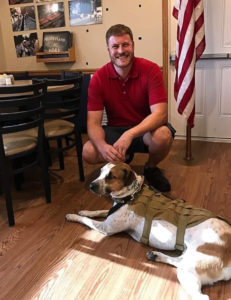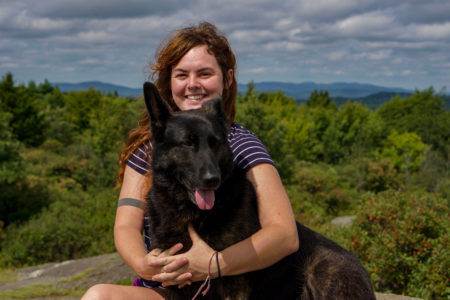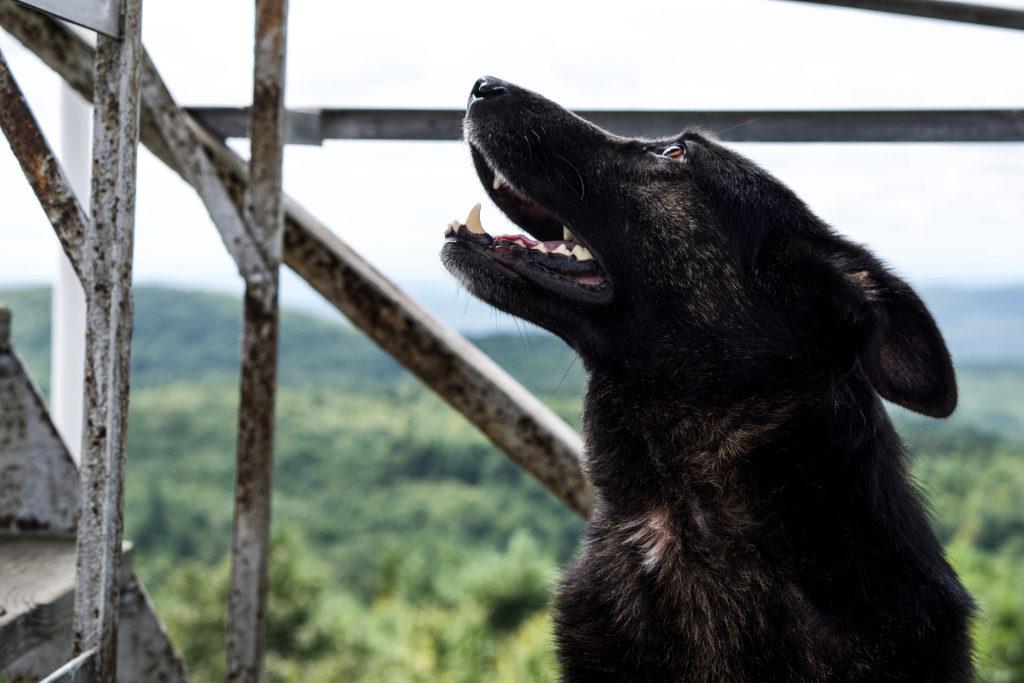Amongst the furry friends and fluffy animals so many of us find dear, service animals are some of a select few who occupy essential roles in our lives. A service animal is a pet trained to fulfill specific tasks for their human, and, according to the Americans with Disabilities Act, can follow their owners anywhere they go. As a result of the close working relationship they have, these animals often form “friendships” with their handlers.
In the case of Travis Thomson, veteran and owner of the service dogs Sadie and Mayor, losing them has been like losing a best friend. “It’s very different,” Thomson said. “My dog was with me 24/7. So, I’m constantly looking over my shoulder, like, ‘Where’s my dog?’”
About a year ago, Mayor passed away due to a kidney disease. In the wake of his death, Thomson notes that the Grinnell community has been incredibly supportive, with many offering their condolences and well-intentioned news of service dogs up for adoption. “But all I wanted was ‘my’ dog, you know?” Thomson said. After three months of grieving, he decided to pair with Sadie, thus beginning the training process all over again.
Earlier this month, when Thomson was cleaning up after work, he put Sadie in his truck, turning away for a few minutes to finish one last task. However, when he looked back, she was gone. In a rush, he went through the entire apartment complex he was working in, knocking on doors, talking to neighbors — finally sleeping in a nearby room, hoping Sadie might wander back around.
But in spite of his hopes, Sadie was found two days later in the countryside, most likely struck by a car. Even though her passing has been as difficult as Mayor’s, Thomson is still glad that he got to spend some time with her before she was gone. He is also grateful to see how the community came together to support him, and Thomson claims that their actions have been restoring his faith in humanity. Sadie and Mayor now rest peacefully in their favorite spots in his backyard.
“I can’t even imagine what [losing my service animal] would feel like,” says Max Semba ’19. “… I feel like sometimes we’re the same person.” Having been together with Jetta, their service dog, for almost five years, they empathize with Thomson’s loss. Semba remembers the time before they had gotten Jetta, saying, “I lost my ability to communicate and do a lot of things for about two months… And then I met [Jetta] … when she saw me, she came over and she sat on my feet… I hadn’t spoken in about two months. And my family didn’t know if I would speak again. And we got in the car with her, and we were driving away. All of a sudden, I started speaking in full sentences. The next day, I was able to go out and walk on my own. And the next week, I could, you know, run and do everything.”
“Having her here with me, I feel like I’m able to function. I’m not worried that my disabilities are going to stop me from being able to achieve my goals or that I’m going to be unable to sit through a class and be unable to participate,” says Semba.
Due to their alert nature, people should remain aware of their behavior when they are around service animals.
“I typically recommend, and this would be what most service animal handlers would recommend, that people not interact with a service dog,” says Autumn Wilke, Assistant Dean for Disability Resources. “And that includes, you know, talking to it, looking at it… And the reason for that is because the things that those dogs have been trained to do… the dog does them, because it’s really in tune and paying attention to its handler. And if it’s distracted, it might miss something really crucial, and that could actually be really dangerous.”
The bond between service animal and handler is warmly affectionate, a cycle of caring for each other physically and emotionally. While Thomson and Semba’s experiences may not be exactly the same, they share a gratitude for their animals. “With both my dogs, it’s amazing how much they want to make you feel better, to help you,” says Thomson. And as Semba puts it, “I don’t know what would have happened if I hadn’t gotten her, if I would have found another dog or anything like that. But I definitely would not be where I am today.”



























































